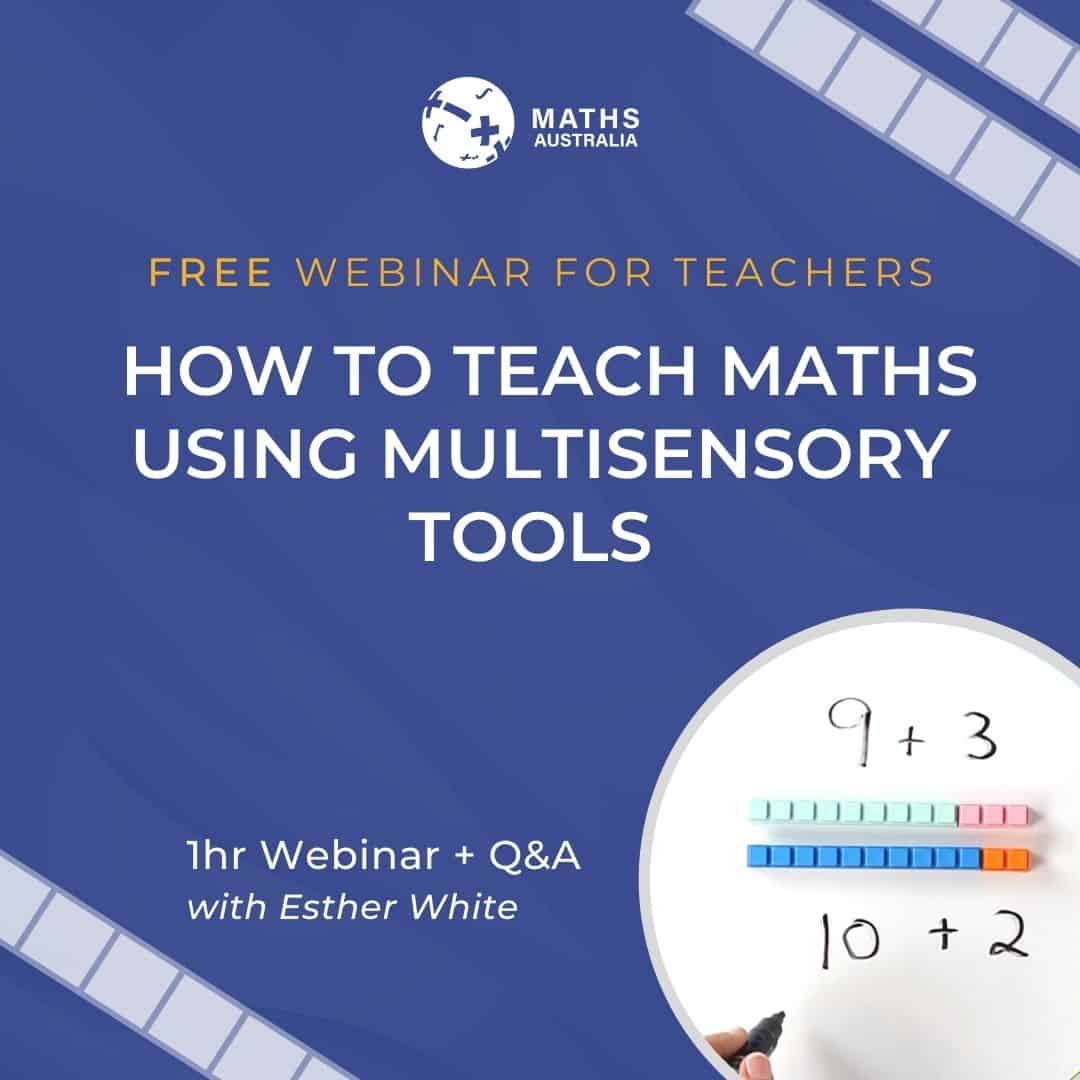
Looking for teacher support for maths?
We know how hard it can be to teach maths, especially when your students are finding simple ideas, such as Place Value, a hard topic.
If you're looking for a way to transform the way you teach your students (especially in the aftermath of interruptions to the 2020 school year), if you have students needing maths intervention, or with learning differences or doing remote learning - then this is for you!
Maths can be a tough subject, especially when you have a whole classroom to teach
How do you teach maths to an entire classroom of students at different levels of maths understanding? How do you show them each concept explicitly so they can understand and move forward confidently? How do you fill in gaps of learning when students require intervention? Or teach maths to those with learning differences?
These are some of the many questions teachers ask themselves. When students struggle to grasp the foundational concepts like Place Value, there's not much you can do. It's like building a house - if you don't have the foundations right, you won't have a strong house.
Place Value is a key concept. When students get to high school, if they haven't understood that each number has its place, they will constantly struggle. How do you regroup numbers and get the correct answer when you add the 10s to the 100s column?
How do you effectively teach maths?
It's important to have a strong framework to teach maths. There are so many numbers and symbols which, without a guided system that progresses from addition to complicated algebraic equations, can be tough to comprehend.
So, to ensure understanding, here's what research says you need to incorporate when teaching maths:
- Foundations established first
- Systematic progress
- Clear and explicit instruction
- Cumulative review
- Use of Hands-on manipulatives
- Ongoing Assessment
- Direct modelling and demonstration
We will be covering all of these components and more in our free webinar session. These essential aspects of teaching maths, combined with a mastery based approach, are sure to set your student up for success.
A free teacher webinar for teaching maths
We know that teachers often feel overwhelmed when teaching any subject - especially maths! It's a subject that is known to be hard to teach kids, especially with a cultural aversion to the subject. Many kids claim they "hate maths" because of a few bad experiences and not knowing what is being taught.
Using these simple methodologies and the hands-on manipulatives, we give teachers the tools and confidence to teach maths effectively. You'll have happier kids in the classroom and achieve better maths results!
Here are the topics we will be covering:
The Language and Symbology of Maths
You'll see how easily students can understand and engage with maths when taught in a more helpful way (and it fits within the pedagogy of how you already teach). See why even regular number charts in schools are built to disadvantage students understanding and what we can do to fix that.
Introduction to Multisensory Maths tools - from Foundations through to Advanced Algebra
Learn how to use hands-on manipulatives to teach different topics in a way that improves student engagement and helps them actually understand maths, from addition and subtraction to fractions and algebra. You'll see how we can completely revolutionise even basic addition when we concretely represent maths problems.
Practical Multisensory Maths strategies you can apply immediately
We're not just going to tell you about multisensory maths tools. We're going to get stuck into practical examples. You'll also get the evidence-based why behind the teaching techniques we showing you and how you can apply this in your teaching right away.
We're also happy to help out with any questions or struggles you are experiencing in your classroom at the moment. We've got a live Q&A session at the end of the webinar where you can ask your questions.
Here's the link to signup to the free teachers webinar:
The Team at Maths Australia
